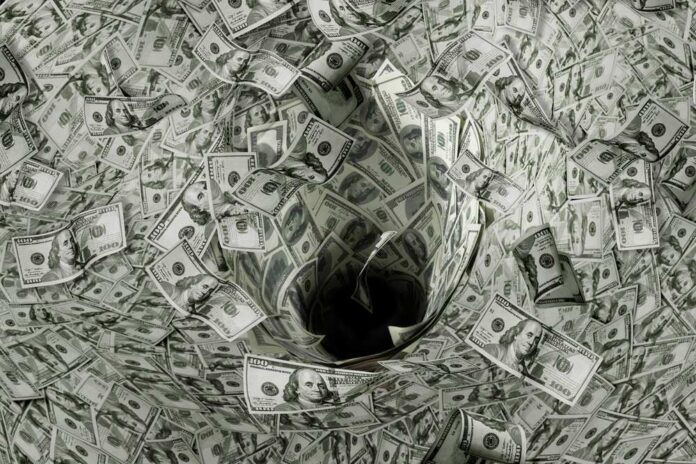
The U.S. dollar’s global dominance is under siege as Russia kicks off the BRICS Summit in Kazan, aiming to dethrone the greenback.
As Russia hosts the BRICS Summit in Kazan, the alliance of emerging economies is making waves with its ambitious goal of creating a new global order. The summit’s primary focus? Reducing reliance on the U.S. dollar. With the expanded BRICS bloc now representing over 45% of the world’s population and 35% of global GDP, this gathering could mark a significant shift in international economic power dynamics. The inclusion of oil-rich nations and China’s dominant role within the group adds fuel to the fire, potentially accelerating the erosion of the dollar’s longstanding supremacy.
BRICS: A Growing Force in the Global Economy
The BRICS alliance, once a catchy acronym for emerging economies, has evolved into a formidable economic bloc. With the addition of Saudi Arabia, Iran, Ethiopia, United Arab Emirates, and Egypt, BRICS now encompasses a staggering portion of the world’s resources and economic output. China, the powerhouse of the group, contributes significantly to the bloc’s exports and GDP, further cementing BRICS’ position as a counterweight to Western-dominated economic institutions.
The inclusion of oil-rich nations like the UAE and Iran gives BRICS control over nearly 30% of global oil output. This strategic advantage could be leveraged to challenge the petrodollar system, a cornerstone of U.S. dollar dominance since the 1970s. It’s no wonder that the Biden administration is sweating bullets – their economic house of cards might just come tumbling down.
🌍💰 BRICS Nations Unveil Ambitious Plan to Rival US Dollar 🔍
The BRICS bloc, now expanded to include countries like Iran, Egypt, Ethiopia, and the UAE, is stepping up its challenge to the US dollar's global dominance.
⚠️⚡At the upcoming summit in Kazan, Russia, from October… pic.twitter.com/2BeJ4vx72R
— Xnews_with_Grok (@Xnews_with_grok) October 22, 2024
The Dollar’s Decline: A Self-Inflicted Wound?
While BRICS countries are actively working to reduce their dependence on the U.S. dollar, it seems the Biden-Harris administration is doing its fair share to accelerate the process. Nassim Nicholas Taleb, the renowned author and risk analyst, didn’t mince words when discussing the potential fallout from recent U.S. actions.
“So I’m really afraid of a progressive loss of the role of the dollar … People nominally conduct transactions in dollars, but they don’t store it in dollars, and that is what the problem is.”
Taleb’s concerns stem from the Biden administration’s decision to freeze Russian assets, a move that he believes has severely damaged investor confidence in the U.S. financial system. It’s as if they’re actively trying to push other nations away from the dollar. Talk about shooting yourself in the foot!
The Trump Factor: A Promise to Maintain Dollar Dominance
In stark contrast to the current administration’s apparent fumbling, former President Donald Trump has vowed to maintain the U.S. dollar’s status as the world’s reserve currency. Trump’s approach? Good old-fashioned American muscle.
“We will keep the U.S. dollar as the world’s reserve currency, and it is currently under major siege, many countries are leaving the dollar. They’re not gonna leave the dollar with me. I’ll say, ‘You leave the dollar, you’re not doing business with the United States, because we’re gonna put 100% tariffs on your goods,'”
While some might call this approach heavy-handed, at least it shows a willingness to fight for American economic interests. It’s a far cry from the current administration’s strategy of rolling over and playing dead while our economic sovereignty is under attack.
The Long Road to De-Dollarization
Despite the doom and gloom, it’s important to note that the transition away from the U.S. dollar won’t happen overnight. Geopolitical analyst Pepe Escobar suggests that complete de-dollarization could take decades. However, the wheels are already in motion, with BRICS countries increasingly trading in their national currencies and developing alternative payment systems.
The gradual nature of this shift doesn’t make it any less concerning. Like a frog in slowly boiling water, we risk waking up one day to find that the dollar’s global supremacy has evaporated. It’s high time for a return to sound monetary policy and fiscal responsibility – values that seem to have gone out of fashion in Washington D.C.
As the BRICS Summit unfolds in Kazan, one thing is clear: the writing is on the wall for the U.S. dollar’s unchallenged reign. Whether through the deliberate actions of our economic rivals or the misguided policies of our own leaders, the greenback’s global dominance is under threat. It’s time for Americans to wake up and demand accountability from those entrusted with safeguarding our economic future. The clock is ticking, and the stakes couldn’t be higher.














